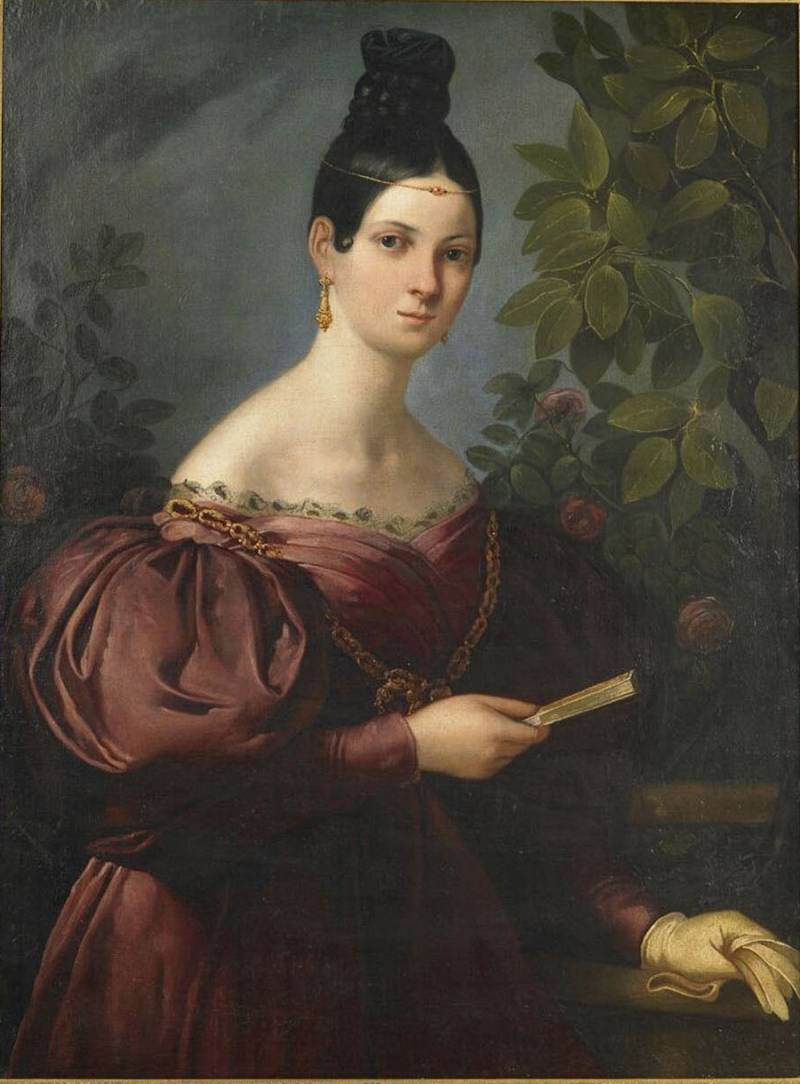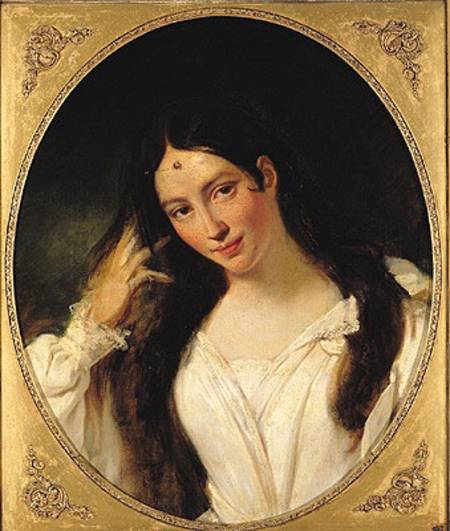Maria Malibran de Bériot
Born: March 24, 1808 Paris, France
Died: September 23, 1836 Manchester, United Kingdom
Portrait of Maria Malibran from the Louvre
Living and dying dramatically, Maria García Malibran de Bériot, the older sister of Pauline Viardot-García, was considered a facile, charismatic singer. She studied voice with her father, Manuel García, an esteemed vocal pedagogue and tenor who often sang in Rossini operas. García, a volatile teacher, was quite strict with Malibran and is believed to have sexually assaulted her. He often drove her to tears during their lessons but, despite her father’s severe treatment towards her, Malibran developed solid vocal technique and made her debut in London at the King’s Theatre at the age of 17. Premiering a number of operatic roles, she sang to acclaim in Italian and English operas in Paris, London and throughout Europe. She was romantically expressive with great vocal flexibility, a wide range and spontaneous acting skills.
In 1825, the same year as her London debut, Malibran’s father took his family to the United States and established an Italian opera troupe in New York that featured performances by the entire family. Singing Rossini, Mozart and Garcia’s operas was excellent practice for Malibran. While in New York, she managed to escape her father’s domination by marrying a seemingly wealthy banker, Eugène Malibran, and refused to sing in her father’s opera company any longer. Malibran’s new husband was 28 years her senior and in terrible debt so much of her income was used to pay off the money he owed. Their brief marriage failed and Malibran eventually left New York.
Charles de Bériot
When she returned to Paris, Malibran performed regularly thanks, in part, to Rossini’s promotion of her. Unfortunately, Malibran found herself cast as the leading lady opposite her father in Rossini operas such as Otello and Il Barbiere di Siviglia which was very disturbing. In 1829, Malibran, now a successful opera singer, met Charles de Bériot, with whom she fell in love and eventually married. In 1836, while in London performing, now married and expecting a child, she went horseback riding with friends. The horse unexpectedly threw her and she was dragged on the ground. Even though she was seriously hurt, she chose to ignore her injuries and continued performing. She died soon after. Malibran’s husband was so upset by the death of his wife that he left town and entrusted Malibran’s sister, Pauline, to handle Malibran’s funeral arrangements. Many of Malibran’s fans attended the public funeral and mourned her untimely death.
While Malibran is mostly remembered for her dramatic and fiery operatic performances, she composed about 50 songs in French, Italian, and English in her spare time. These romances, generally strophic, with settings inspired by styles from different countries, feature simple accompaniments that emphasize the melodic vocal line.



